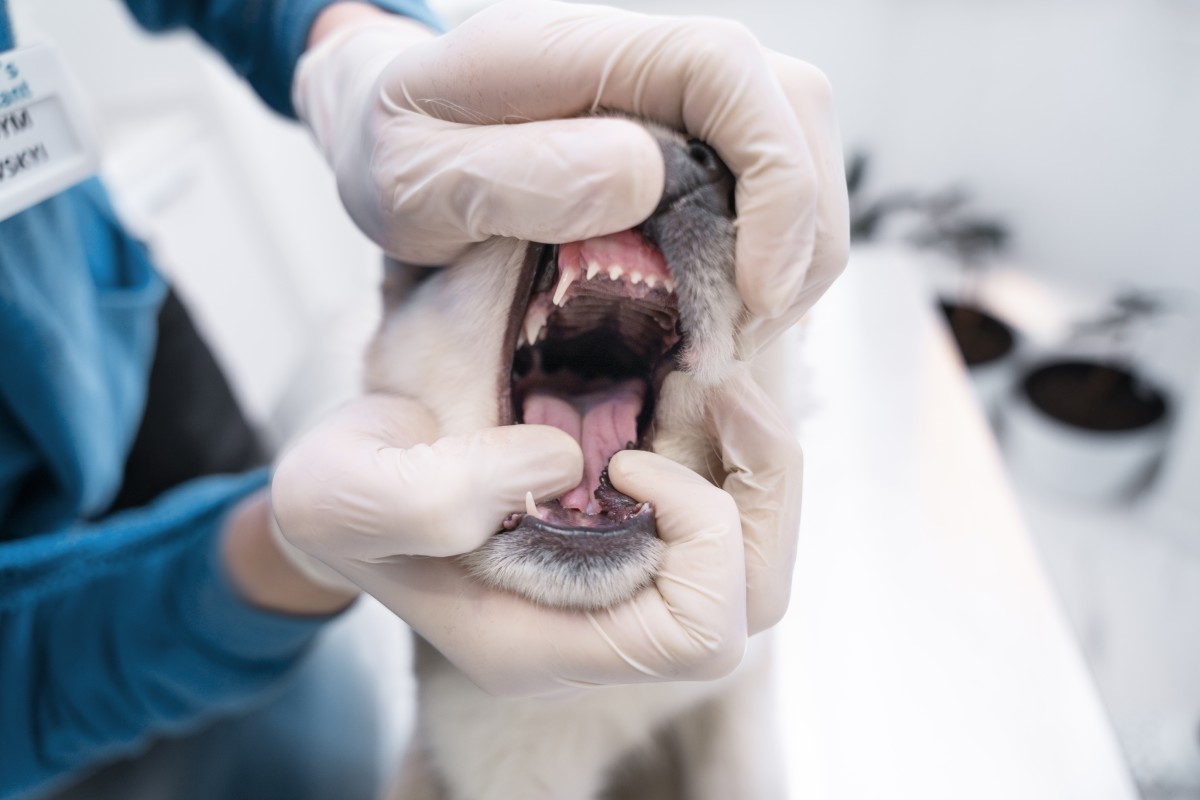Services
Expert Pet Dental Care in Omaha: A Healthier Life from Tooth to Tail
Does your dog have bad breath that won’t go away? Have you noticed your cat being picky with their food? These can be subtle signs of painful dental disease, a condition affecting most pets by age three. While at-home care like dental chews is a great start, it can’t fight the hidden plaque below the gumline. At Lone Tree Animal Care Center, we provide comprehensive pet dental cleanings in Omaha that go beyond the surface to protect your pet’s long-term health.
Is My Pet in Pain? Signs of Dental Disease to Watch For
Animals are experts at hiding pain. You might not know your companion is suffering until their dental disease is advanced. Be on the lookout for these common warning signs:
-
Persistent bad breath (halitosis)
-
Red, swollen, or bleeding gums
-
Yellow or brown tartar buildup on teeth
-
Dropping food, chewing on one side of the mouth, or reluctance to eat
-
Pawing at the mouth or face
-
Loose or broken teeth
If you’ve noticed any of these signs, it’s time to schedule a dental health assessment with a veterinarian.
Beyond the Toothbrush: What Our Professional Pet Dental Cleaning Includes
A professional cleaning is the only way to remove the bacteria that cause periodontal disease. We treat your pet’s dental health with the seriousness it deserves, ensuring their safety and comfort at every step.
Our comprehensive procedure involves:
-
Pre-Anesthetic Health Screening: We perform bloodwork to ensure your pet is a healthy candidate for anesthesia.
-
Safe Anesthesia and Monitoring: Your pet’s safety is our top priority. A dedicated veterinary technician monitors their heart rate, oxygen levels, and other vital signs throughout the entire procedure.
-
Deep Scaling & Cleaning: We carefully remove plaque and tartar from above and—most importantly—below the gumline, where dangerous bacteria hide.
-
Polishing: We polish each tooth to create a smooth surface, which helps slow future plaque buildup.
-
Tooth Extractions (If Necessary): If a tooth is broken, infected, or too damaged to save, we can perform a safe and efficient tooth extraction for your dog or cat to relieve their pain and prevent further infection.
Post-Procedure Care and Your At-Home Plan
Our care doesn’t stop when the cleaning is over. We’ll provide a clear plan to manage your pet’s comfort and long-term dental health. This includes:
-
Personalized pain management to ensure a comfortable recovery.
-
Guidance on specialized dental diets for pets that can help reduce plaque and tartar.
-
Practical tips for at-home care you can start once your pet has healed.
Protect Your Pet from Hidden Dental Pain. Schedule a Consultation Today.
Don’t wait for a small problem to become a serious health risk. Contact the Lone Tree Animal Care Center team in Omaha, NE, to book your pet’s dental health assessment and give them the comfortable, healthy life they deserve.
Dental Care FAQs
Pet dental care is essential for the health of your pet. Prevention is always better than treatment when it comes to dental health, and there are many things you can do as a pet owner to promote good oral hygiene. At Lone Tree Animal Care Center, we have been providing pet owners in Omaha, NE with pet dental care services for many years. We primarily serve Omaha and Council Bluffs. Following are the answers to several questions our veterinarian frequently receives regarding pet dental care.
How Common Are Pet Dental Issues?
More than 70% of cats and dogs over the age of five suffer from periodontal disease. This dental disease means that your pet has lost the supporting structures of its teeth. This is a very uncomfortable dental disease that can cause loose teeth, allow bacteria into the bloodstream, and cause heart, liver, and kidney damage.
Can Pets Suffer Dental Issues Even if They Show No Signs of Pain?
Just because your pet is not showing any obvious signs of being in pain doesn’t mean that he or she is not suffering from a dental condition. When it comes to sensing pain, cats and dogs have the same basic anatomy as humans. Since many dental conditions that cause pain gradually worsen, most pet owners may assume that their pet is just acting weird due to being grumpy, etc. When the condition that is causing pain is removed, the improvement is very obvious. Following treatments, many pet owners have noted that their pets have been acting “younger.”
How Do I Know My Pet Needs Dental Care?
If you notice any of the following, contact our veterinarian:
- A red stripe along your pet’s gumline
- A change in the way your pet chews
- An unpleasant odor in your pet’s mouth
- Cannot see your pet’s teeth due to the accumulation of calculus
- Notice broken or discolored teeth, a decrease in appetite, difficulty swallowing, or an enlargement of the tissues in the mouth
These signs indicate a dental problem.
How Often Should My Pet Have His Teeth Cleaned?
Certain factors may affect how often pet dental care is needed, such as pre-existing diseases, diet, and individual habits. The typical time frame for pets to have their teeth cleaned is every six months to a year.
